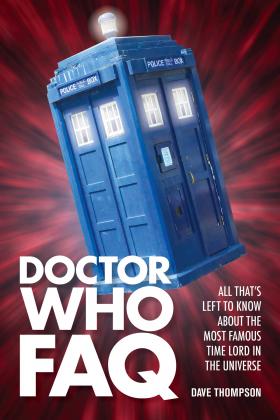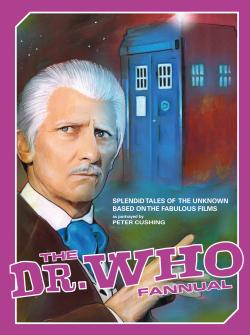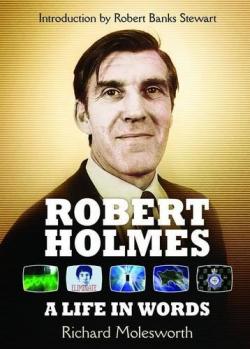Doctor Who FAQ
Sunday, 21 September 2014 - Reviewed by

Doctor Who FAQ
Written by Dave Thompson
Publisher: Applause Theatre Book Publishers
Available from Amazon UK
Available from Amazon USA
A British ex-pat, Thompson writes a book mostly orientated towards new viewers, people who probably discovered the show by the end of Matt Smith’s tenure, or who just went on board because they were already Peter Capaldi fans. In any case, what this book offers is a detailed story of the show’s history, from its creation to its demise in the 1980s and its reboot in 2005. Of course, there is a detailed account of all the Doctors, the companions and the villains of the show -needless to say, the Daleks have their own chapter.
The funny thing about this introductory book (which also contains plenty of new and useful information for the Doctor Who connoisseurs) is that Thompson is not afraid to share his personal opinion. After all, this is a very intimate book, written by someone who witnessed the birth of the show back in 1963 and who grew up with it. That way, anyone who has never watched Doctor Who and decides to give it a try, will probably feel biased and influenced by Thompson’s own tastes, instantly disliking the Sixth Doctor (and I say dislike in an effort to avoid the word “hate”) and Matt Smith’s Eleventh, as well as companions Rory and Amy, whose stay at the TARDIS he considers “a nest of domestic tedium.” They are not the only ones, though, as he shares his views on every companion (he could not stand Adric, Mel or Peri and does not even consider Grace Holloway as one).
These are Thompson’s memoirs of his life as a Doctor Who fan, so he talks about every companion and Doctor with the knowledge of an expert, one that simply tells you whom he liked and whom he did not, as it is expected. Or maybe I am okay with it because he loves David Tennant’s Tenth and Billie Piper’s Rose Tyler, who happen to be my Doctor and my companion.
The book is written with wit and in a compelling way that allows the reader to learn more about the history of Doctor Who, but it is especially helpful for those who joined the show’s fandom after its comeback in 2005, because it contains an impressive amount of stories and facts from the series’ first stint, information that surely helps understand many thing from the new Doctor Who. Because in the end, 50 years is a lot of time. There are so many episodes, novels, audiobooks, comics... The so-called Whoniverse comprises a huge amount of material than can get lost in the mind of a fan, and that is exactly what Thompson wants to avoid, by collecting all the necessary information a Whovian needs to know.
After all, if each one of us wrote a book about our Doctor Who life experience, it would look pretty much like this one. And that is what makes it a must-read.
(If you want to read more from a Doctor Who fanatic, you can visit my blog )













